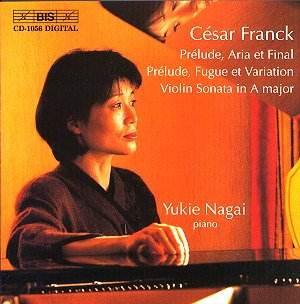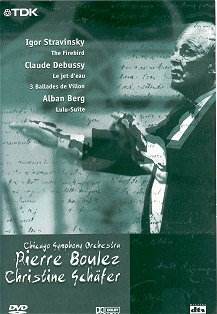 Composer: César Franck
Composer: César Franck
Works: Prélude, Aria et Final; Prélude, Fugue et Variation (transcribed by Ignaz Friedman); Sonata in A for violin and piano (transcribed by Alfred Cortot)
Performers: Yukie Nagai (pianoforte)
Recording: Recorded 26/29 January 2000, Studio Ernest Ansermet, Geneva, Switzerland
Label: BIS
César Franck, a pivotal figure in the late Romantic period, is often celebrated for his rich harmonic language and profound emotional depth. His works, particularly for piano, though fewer in number, reveal a complexity and intimacy that resonate deeply with performers and listeners alike. The present recording features a selection of Franck’s compositions, including the lesser-known Prélude, Aria et Final and the more frequently performed Sonata in A, both transcribed for piano. These pieces, alongside the Prélude, Fugue et Variation, offer a compelling exploration of Franck’s musical vocabulary.
Yukie Nagai’s interpretation of the Prélude, Aria et Final showcases her ability to navigate the work’s expansive emotional landscape. The opening movement, often criticized for its length, is here rendered with a sense of purpose and flow that dispels any notions of labored pacing. Nagai treats the music with a deft touch, allowing Franck’s intricate textures to unfurl naturally. The lyrical lines intermingle seamlessly with a robust contrapuntal structure, particularly evident in the finale, where the climactic moments maintain a sense of grandeur without veering into excess. The clarity with which she delineates the thematic material is commendable, making the work’s emotional trajectory accessible even to those unfamiliar with its intricacies.
The transcription of the Prélude, Fugue et Variation by Ignaz Friedman could easily fall prey to the pitfalls of inadequacy when performed on the piano, yet Nagai’s approach defies these expectations. The work, originally conceived for organ, retains its essence under her fingers, demonstrating her skill in translating its sonic qualities to the piano. The fugue, with its elaborate counterpoint, is articulated with precision, and her handling of the variations showcases a keen understanding of Franck’s intent. The balance between the voices is exceptionally clear, enabling the listener to appreciate the complexity of the polyphonic interplay.
Nagai’s performance of the Sonata in A for violin and piano, transcribed by Alfred Cortot, further illustrates her interpretative prowess. While the absence of the violin might suggest a compromise in the work’s integrity, Nagai’s pianistic interpretation stands robustly on its own merits. The rich sonorities she conjures from the keyboard evoke the violin’s melodic lines with striking fidelity, creating a sense of dialogue that is both engaging and evocative. The canonic passages in the final movement, traditionally performed on two instruments, are particularly well realized, revealing the depth of Franck’s musical architecture.
While the recording quality is commendable, offering a clear and balanced sound, there are moments where one might yearn for a slightly richer acoustic space to fully envelop the listener in the sonorous beauty of Franck’s music. However, Nagai’s artistry is such that these concerns dissipate as one becomes engrossed in the music itself. The engineering captures the nuances of her performance, allowing the subtleties of dynamics and phrasing to resonate effectively.
This recording of César Franck’s works is a testament to Yukie Nagai’s exceptional musicianship and interpretative insight. Her ability to breathe life into these pieces is marked by a naturalness and clarity that invite listeners into Franck’s captivating world. The combination of thoughtful interpretation and technical proficiency makes this album a valuable addition to the discography of Franck’s piano music. Nagai’s artistry not only honors the composer’s legacy but also enriches our understanding of his oeuvre, making this recording a compelling exploration of Franck’s imaginative soundscapes.



